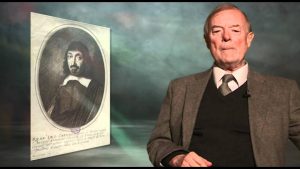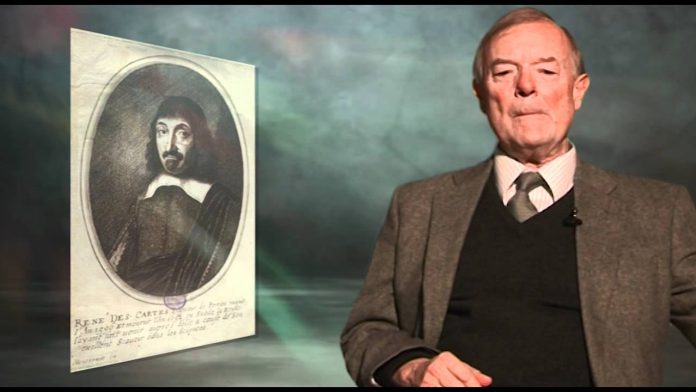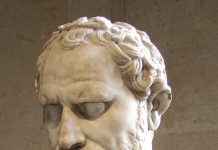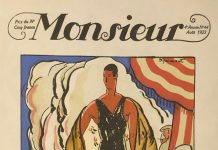I have always believed that the easiest place to lose oneself is inside one’s own head; of course, it’s the only place to find one’s self too. Or, at least, the only place to get to know one’s self, the self, that “me” inside the human person, as Descartes would say it. I find it a delectably ironic reflection upon humanity that after 8,000 years and beyond of human civilization, we still lose ourselves in our own heads, in the abyss where faint grumblings of eternal meaning rumble every so often, trying to pursue the self, the identity that will order our interpretation of life in a truly meaningful way. Some people call it the soul. John Cottingham’s In Search of the Soul is at once many things for the soul, or at least the concept of the soul: it is a history of the soul, it is a philosophical investigation of the soul, and, moreover, it is an apology for the soul. At some point, it even becomes a map to a sane interpretation of life centered on the soul. Cottingham is daring in this book: He appeals to poets more often than any group of individuals, which is something I will canvas more closely later. Perhaps he feels the poets are closer to humanity than the philosophers. He would not be wrong. Besides, philosophers of the soul are like most critics: They seem not to possess what they attempt to explain. But Cottingham wishes to change that conception: “The methodology. . . connects with a goal. . . namely, to promote a more ‘human’ conception of philosophizing.” He spends a great amount of time in his book, or essay as he calls it, on an idea which does not require any abstract proof or reasoning: the yearning for a permanent meaning which remains forever unique to the “one” who possesses it. Cottingham prefers to use Descartes’ terminology throughout the book: “this me, that is to say the soul, by which I am what I am.” This me. Cottingham proposes a situation to illustrate the internality of this “me”. Imagine there were ten other people exactly like you, whose brain-states, and yours, are able to be technologically charted. You and your ten twins are thinking the same thoughts at the same moments on the same topics. And yet no one, not the scientists who are charting your thoughts, not even those identical twins, will ever know how it feels to be you. Often feeling is even more powerful than thinking. Is this that individuality? Is it Feeling? It is more than feeling though; we are each centers of individual consciousness, as Cottingham says. There is an awareness present in each human person which is an unshared awareness if only because it is an awareness unique to that person. And yet, in so many ways, empathy and interaction and mutual suffering and shared experience, the consciousness of a man seems to ripple across reality and meet the ripples of other men. We suffuse the world with consciousness. We make the very hills and dales aware of their beauty. “Human beings have a special role here, to bring the beauties of hill and valley to life”. . . As David Berlinski is so fond of quoting Gerard Manley Hopkins (as does Cottingham) when he says, “The world is charged with the grandeur of God”. But it takes a godlike consciousness to perceive the grandeur, and not only perceive, but experience. In that subjective sense, we humans are what makes reality by living it, just as someone is said to make an experience by – experiencing. And yet, the soul, as Cottingham says, is shadowy. It is dark; it is not a mere apprehender of beauty. He appeals to Freud and Jung to aid him in piercing the darkness of the human soul, that place where men have become lost in searching for thousands of years. Cottingham particularly contemplates Jung’s idea of “individuation” or embracing both the light and darkness of the human internal nature. Integration is an apt term for it (see articles in Sun News I have written before on my philosophy of integrated and non-integrated identities.) Of course, Cottingham, like the concept which he contemplates, is all over the place. He synthesizes a knowledge psychological, philosophical, historical, and theological into a coherence of idea which is the second greatest testament to his undeniable writing ability.
As for his particular views, he seems to find a conceptualization of the soul as fundamental to at least a sensible philosophical interpretation of the world. After all, as Cottingham perhaps stresses a little too conscientiously, the soul need not refer to an invisible entity which is separate from the physical. Aristotle himself believed in a body-soul interdependence, in the intimate marriage of structure and form. In other words, the soul was a necessary part of the body, not an energy which had been fed into the body and thereby something separate from it. “The soul is not a separate entity in its own right, but is related to the body as form is to matter. . .” But let us draw a complete circle, and end where we began the exploration: with the poets. Cottingham opines that “humane” philosophy must draw upon the full “psyche” of the person, which includes the aesthetic and poetic facets of consciousness. And yet, philosophy itself is based historically upon abstract reasoning and intellectualizing; poetry is so often based upon intuition. Cottingham seems implicitly to condone poetic intuition as a form of legitimate knowledge or knowing of the universe, especially the universal experience. He quotes Hopkins, Shakespeare, Kipling, Wordsworth, Marlowe, Hardy, and Magee. He begins by talking of poetry and he ends with the last line of the sonnet “High Flight”. It is, in my humble opinion, a daring move for a philosopher, because he not only appeals to the poets for explanation, he appeals to them for authority. Poe’s Eureka essay flashed across my memory because it was Poe’s somewhat messy attempt to establish, by abstract reasoning itself, why poetic intuition was as legitimate a form of knowledge as abstract inquiry and reason are taken to be. I agree with Poe’s sentiment, but poetic intuition need not be proven through abstraction. To abstract intuition is to pervert it. Cottingham merely correlates shared human experience to poetic observations; that is his legitimization of intuition, and it is brilliant.
He particularly relies on the poets as he reaches the latter parts of his essay, the parts in which he offers a very simple reason for believing in the soul: the belief satisfies an eternal longing. Theistic belief is often conjunct to a belief in the soul, but Cottingham (again, perhaps a bit too conscientiously) stresses that Theism need not be a conjunct. His belief in the value of theism seems more philosophical than religious. As Nietzsche once proclaimed, God is dead. But Nietzsche also thought (and Cottingham seems to think, and I certainly think) that man would die along with God. Cottingham writes about Nietzsche, “he sees it as coinciding with the collapse of humanity itself – the end of being human as we now understand it.” Why is this? Because man will no longer seek for higher than himself. He kills God and enthrones himself; the twentieth century alone shows us that man is not a good god, not even a decent one. Cottingham’s book is genius, I do not think that is an understatement. It introduced to me concepts which in the future I shall write about. And for all those of us lost inside our own heads, the book is a comfortable affirmation that somewhere, correlating to those grumblings of eternal meaning, a self will be found.
(There is a mistype on p. 123: “approach”, instead of “approached”.)
John Cottingham, professor emeritus of philosophy at Reading University in England, previously authored Philosophy and the Good Life and more than 30 other books. He was president of the Aristotelian Society, and the British Society for the Philosophy of Religion.
In Search of the Soul, $22.95, is published by Princeton University Press.














